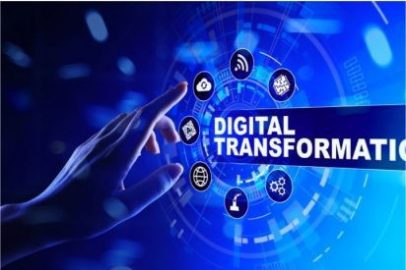The corona pandemic was a powerful accelerator for digitization: companies that did not yet have a transformation strategy had to create one overnight. However, it was often forgotten to take the employees with them. However, a successful digital transformation can only be achieved if technology and employees are in harmony.
Due to the Covid-19 pandemic, the markets around the world were initially in a downward trend. However, the global economy recovered relatively quickly. The IMF is forecasting growth of around 6.4 percent for the United States in 2021 and about 3.5 percent in 2022. This would mean that the USA would already achieve a higher gross domestic product (GDP) this year than before the pandemic. In Germany, GDP is expected to grow by 3.6 percent this year and next.
Quick Adaptation
This upswing can also be attributed to the rapid adjustment to the new situation. Because the measures to contain the pandemic forced companies to accelerate their digital transformation. Organizations with a higher degree of digital maturity have often achieved their long-term transformation goals within months or even weeks. At the same time, organizations whose digital strategies were still in their infancy started digitization initiatives straight away. The latest Digital Acceleration Report from HCL Technologies confirms that almost 88 percent of companies now have a well-developed digital transformation strategy.
The Human Being At The Center Of Digital Culture
The success of digitization depends crucially on the skills and willingness of the employees who use the technologies. The basis for this is a flexible corporate culture. Acceptance of organizational change is central to creating a well-prepared business continuity plan. This should be made and implemented through clear and decisive action by the company management because the mindset of employees has to change completely. With the right culture, organizations manage to survive in crises and challenging situations, but they are also able to react flexibly to changes and be innovative.
Any organizational change should be based on a robust and people-centric technology culture. The basis is an agile and adaptive organization that is supported by a strong technology core. An agile approach enables companies to adapt to new business challenges quickly. To accelerate this ability and react more rapidly to dynamic market trends, the involvement of stakeholders from the entire organizational value chain is essential.
Draw Potential From Collected Data
In addition to a lack of know-how, outdated technology, and data governance are often obstacles to faster digitization. To support employees, companies must promote the use of AI platforms. Because through the use of cognitive systems, everyday tasks can be automated, and internal skills can be developed and promoted.
According to the Digital Acceleration Report, concerns about data security and governance (40 percent) and legacy technologies (35 percent) are two of the most significant barriers to rapid digitization. Large organizations, which have been among the most critical users of technological innovations in the last few decades, often rely on an infrastructure that comprises several hundred different systems. These generate tons of valuable data that will help decision-makers grow their businesses. However, the lack of seamless, uniform data platforms and the resulting data silos mean that this information remains largely unused.
Break Open Silos
The breaking of the data silos began even before the pandemic. As early as 2018, many companies (49 percent) concentrated on creating added value through data analysis. The Digital Acceleration Report shows that 41 percent of companies plan to invest in big data analytics, AI, and automation, while 39 percent plan to invest in the Internet of Things (IoT) and edge computing. The growing adoption of these technologies has further increased the importance of data security and governance. Both cybersecurity and cloud computing is high on the list of new technology investments.
Strategic Partner Ecosystem
Time and again, digital transformation initiatives fall short of expectations. Reasons are insufficient planning, incorrect selection of tools, lack of the necessary skills, or faulty execution. However, perhaps the most critical finding is that companies cannot make the transition on their own. You should accelerate your digitization with the help of technology partners and accelerate the immediately necessary technological changes. Cultural and technological change are closely interlinked. Companies have to implement a digital transformation strategy that empowers employees and at the same time strengthens the technical infrastructure. That requires a similar focus on improving human skills and digital technologies. The right strategic partner ensures an efficient, seamless, and impactful transition and helps scale internal capabilities.
Also Read: Data Science In Agriculture: How We Can Produce More Harvest

